The market place is changing for UK machine builders
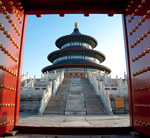
Wage and consumption levels are rising in the developing economies of Asia, including China. This is opening up an enormous market to UK machine builders and automation engineers who can help them keep production costs down.
At a recent UK Machine Builder conference, hosted by Mitsubishi Electric, strategies for entering Asia and China and building sustainable business were explored.
The great rush into Asia has been underway for some years but until recently the call for manufacturing automation and production machinery had been relatively modest but now, with local labour rates increasing and domestic consumption growing, things are changing fast. In China there is a further twist in that the senior figures of national government are giving way to new leaders who are charged with growing and developing the internal economy of the country – and where China leads, its neighbours are likely to follow.
Throughout Asia much of the recent economic development has been around coastal ports, which provide easy access to export markets. In China development has concentrated on the eastern seaboard, leaving the vast interior to follow in later years.
When people leave agriculture to work in new manufacturing industries, they also move into urban environments where they were unable to grow their own food. This results in them buying food and the rise of retail activities, which quickly develops into the consumption of other goods and services too. Thus demand for manufactured goods and consumables develops alongside the export side of the economy.
This has been apparent in the Asian economies, where naturally wage levels have also increased. It was also inevitable that as industry developed it would be impossible for these countries to produce enough engineers, other professionals and skilled workers. (Economists call this the Lewis Turning Point, where people are no longer willing to work for very low wages because they have opportunities to change to higher paid jobs.) In this way, Asia’s eventual need for automated production was predictable and put simply, its time has come.
It is also worth noting at this point that the vast interior regions of China are now developing too. They are some years behind the coastal region but their development will be quicker and more assured, so over time they will catch up.
Slowdown
There has been some worry that Asian growth has slowed in recent years. But to put this into perspective, the main engine, China, has slowed to 8 per cent! In the well developed coastal centres growth is down to 5 per cent and 65 percent of its economy is now service, an indicator of a maturing economy – and an increasing need for automation!
In a developing country there is inevitably some resistance to importing goods and services. Furthermore the amount of help available to companies for translations, currency exchange, tariffs, visas etc will also be low and there is probably a culture of wanting to ‘buy local’. So in order to win business in Asia and China, overseas companies must have a strong USP (unique selling point) or specialism.
Robert Doak, a conference speaker from UK Trade & Investment (UKTI), says that British companies may have their own technical USP but that collectively they are also very good at combining products and service/support:
“Some countries can supply excellent goods; others sell intellectual expertise. But few can achieve the goods and service mix of the UK,” he says. “This is a tremendous strength for machine builders, whose goods will probably need commissioning, regular servicing and frequent redevelopment to adapt to changing end-user demands.”
Doak is also keen to stress that exporting halfway around the world is not the sole preserve of big companies. “There are many opportunities for SMEs, and once established in China a steady stream of work is likely to develop. Getting set-up initially can seem dauntingly complicated, but good initial research and exploratory visits are the first steps. Then there are layers of help available from UKTI, trade associations, business councils, export agencies, all of which are invaluable.”
Another point raised by Doak was that many UK companies think only of China and forget its expansive neighbours, which also need the goods and services of international machine builders. The 10 or 12 nations south of China form a significant sized market, with a combined GDP (gross domestic product) of about US$2trillion (about one-third the size of China or four times the size of the UK). Also in the region are Japan (GDP US$5.5trillion) Korea (US$1trillion) and Hong Kong (US$0.25trillion), all of which are potential markets. Collectively Asia has a GDP comparable to the USA or the EU (US$15-17trillion).
Speaker Stewart Ferguson from the China-Britain Business Council focussed on China’s vast economy. He pointed out that it is not a unitary market, but that the different regions are semi-autonomous, and often culturally very different.
“The language of business throughout China is Mandarin,” he says. “But the local accents and dialects can be so pronounced that they are effectively different languages – even the Chinese sometimes have difficulty understanding people from other regions. There are also major differences in culture, attitudes and manners that you have to allow for if you travel across the country.”
China has a bewildering mix of private companies and state-owned enterprises. Most Chinese companies will only pay in the local currency and will make no effort to help suppliers import their goods. But it is worth noting that China also has many resident non-Chinese companies, so UK machine builders may find it easier to deal with or through these rather than setting up their own distribution arrangements.
UK companies also need to think about how they are going to repatriate their money out from Asia and to make sure they are able to cope with currency fluctuations. There is also the issue of local regulations and protecting intellectual property rights.
Another speaker was Grant Collier from the PPMA Group of automation-focused trade associations. His organisation is very pro-active in helping companies set up in China and has formalised procedures into its three-tiered Dragon Service.
“Our Silver Dragon provides support services, such as market overview research, translations, media contacts,” he says. “With Gold we make introductions, arrange business tours and build contact networks.
“Platinum is what really set us apart. We run an office in Shanghai and will recruit and employ people for clients. They have tenancy in our office and we manage their activities on your behalf. Thus we remove just about all the risks from that initial setting up period.”
Mitsubishi Electric in Asia
Chris Evans looked at Mitsubishi’s position in Asia. “Mitsubishi Electric is the leading supplier of automation technologies in Asia, which means we offer a stable and locally accepted platform,” he says. “We are renowned for the quality of our products and have the infrastructure on the ground in Asia to support and service our equipment.”
Asia has been quick to adopt open standards for data communications (i.e. field devices from many different manufacturers connected to a common network). The preferred solution for this in the region is CC-Link, which has a dominant market share throughout Asia. This is not so surprising when you realise that CC-Link was developed in Japan, so is seen as the local choice. CC-Link was established as an open network 12 years ago and now has support from many global sensor and device manufacturers.
Evans also offered an insight into the way many UK based machine builders are thinking: “We are having conversations with many machine builders who maybe have not used our products as their first choice in the past but now realise the potential for business in China and throughout Asia and understand that partnering with Mitsubishi and having a Mitsubishi offering for their machines is very important to succeed in this region.”
Similar articles
More from Mitsubishi
- Want a robot but don’t know where to start? 11th June 2021
- A pizza challenge for Control Freaks 22nd April 2021
- Competitive factories need to leverage the power of data 15th April 2021
- Combining user-friendliness with high performance 16th March 2021

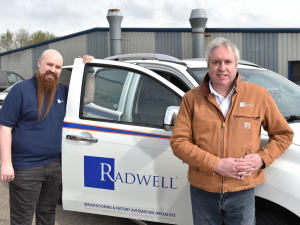
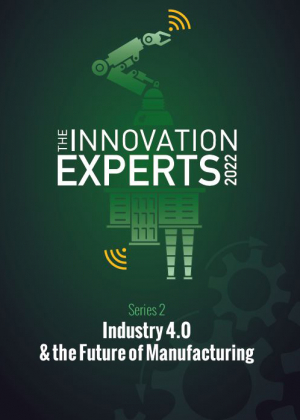
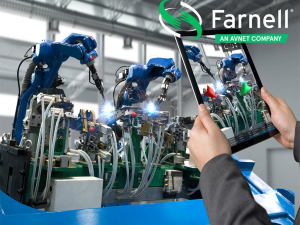
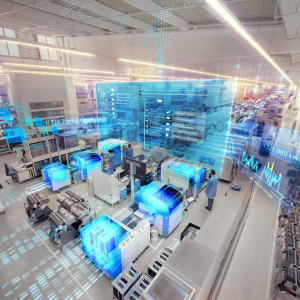







Write a comment
No comments